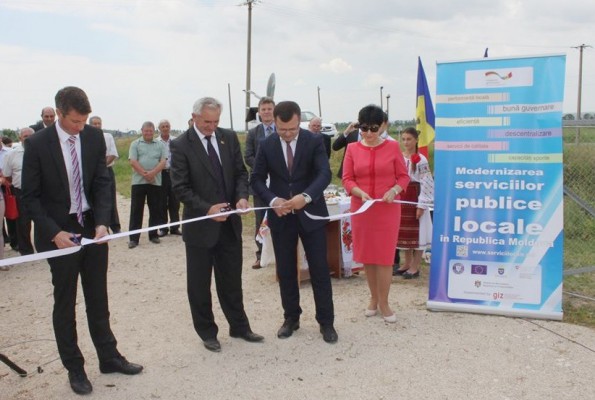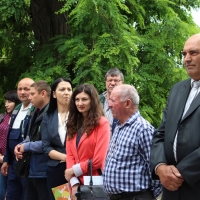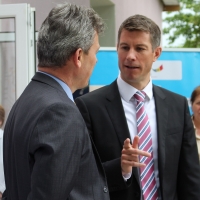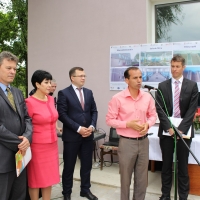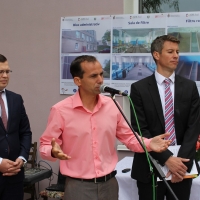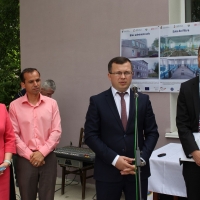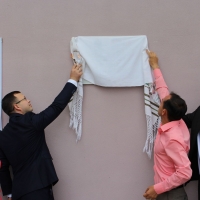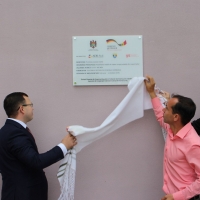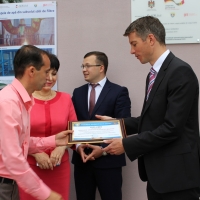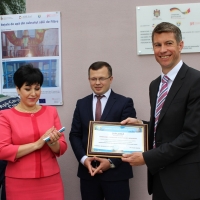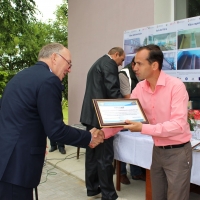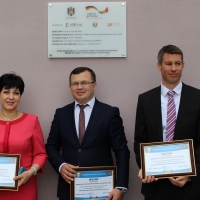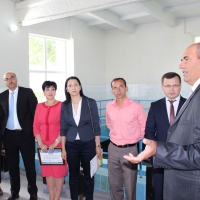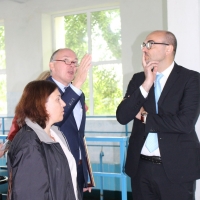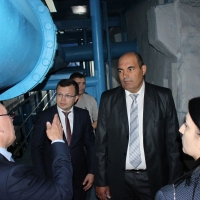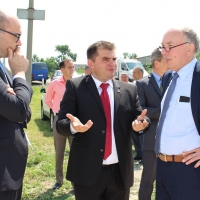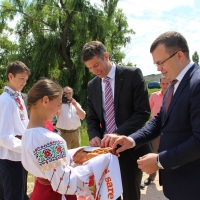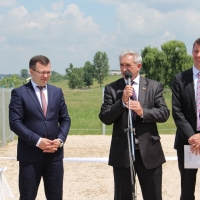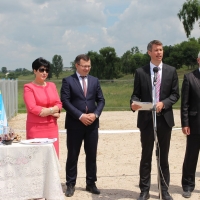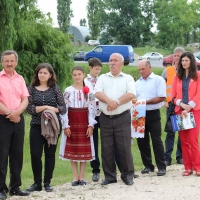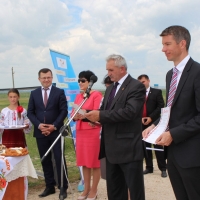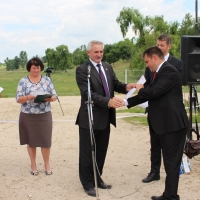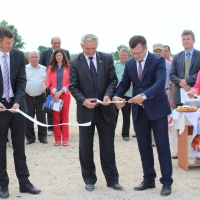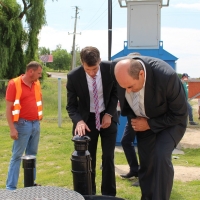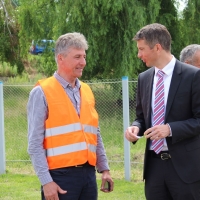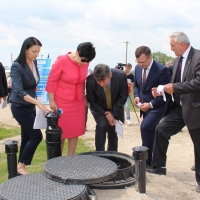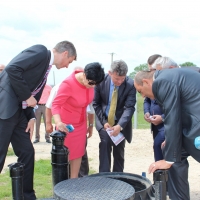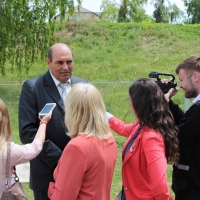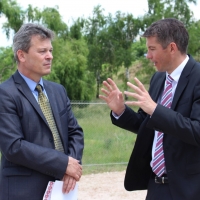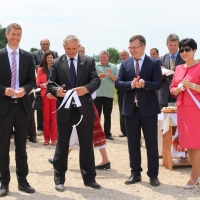On 15 June 2017, the inauguration of Drinking Water Treatment Plant in Cahul town and of Sewage system in Rosu village took place. Both investment measures were implemented by South Regional Development Agency (RDA), Cahul municipality and Rosu village administration with the support of the Federal Republic of Germany via German Development Cooperation through GIZ.
The event was attended by representatives of diplomatic missions in the Republic of Moldova and development partners, representatives of Ministry of Regional Development and Construction, South RDA, local public administrations of Cahul town and Rosu village and GIZ.
Nicolae Dandis, mayor of Cahul town: ‘This is a very importnat investment, first of all for the residents of Cahul rayon, as they deserve to enjoy qualitative water supply and sewage services which are ensured by the renovated Cahul drinking water treatment plant… And, this is proven by the fact that now we have qualitative water, verified and tested by several institutions. In this regard, I would like to thank the German Government and all development partners for the assistance and financial support provided to achieve this result.’
Nicolae Savilenco, mayor of Rosu village: ‘The inauguration of sewage system in Rosu village is just the first step in ensuring sanitation services for Rosu village inhabitants. Now, follows the connection of each household to this utility. Nevertheless, I would like to thank all those who along many years have provided both financial and technical support, and especially the German Government and the German people in general. The sewage system is a positive benefit for the environment and people’s health.’
Florian Seitz, Deputy Head of German Diplomatic Mission in Chisinau: ‘The population of the Republic of Moldova is the target group of German Development Cooperation. Improving living conditions in the rural areas is on a leading place in our agenda. Modernization of water supply and sewage is very important for people and their health. Germany together with other international partners was and is active in implementing regional projects in the Republic of Moldova. These projects focus not only on infrastructure, but also on participation in planning, on trainings and other activities of raising awarenes as to the role of having a careful attitude towards the environment. Germany has a tight cooperation with local and international partners in this respect…’.
Dorin Andros, Secretary of State, Ministry of Regional Development and Construction: ‘These projects started with a thorough strategic planning, and these two renovated and constructed facilities were priority and important projects not just because of the amounts allocated, but also because of figures. For instance, over 40.000 inhabitants of Cahul rayon will be the beneficiaries of water supply and sewage services. This was an effort which led to benefits for the entire population in the region, a thing made possible with the financial support of the German Government. We hope for the local public authorities to be able to ensure the sustainability of these projects in the future’.
The rehabilitation of the Drinking Water Treatment Plant in Cahul town and the construction of the Sewage system in Rosu village are components of ‚Improvement of Water Supply and Sewage Services in Cahul rayon’ project implemented under the ‚Modernization of Local Public Services in the Republic of Moldova’ (MLPS) project in partnership with the Ministry of Regional Development and Construction, South RDA and local public administrations of Cahul town and Rosu village.
The renovation and construction works at both facilities were carried out between September 2015 and December 2016 and were financially supported by the Government of the Federal Republic of Germany under MLPS project implemented by GIZ. The total amount of both investment measures is approx. EUR 27 million lei.
The project ‘Modernization of Local Public Services in the Republic of Moldova’ (MLPS) is implemented by the German Development Cooperation through GIZ and is financially supported by the German Ministry of Economic Cooperation and Development (BMZ), the Swedish Government, the Romanian Government, the European Union and the Swiss Agency for Development and Cooperation (SDC).


